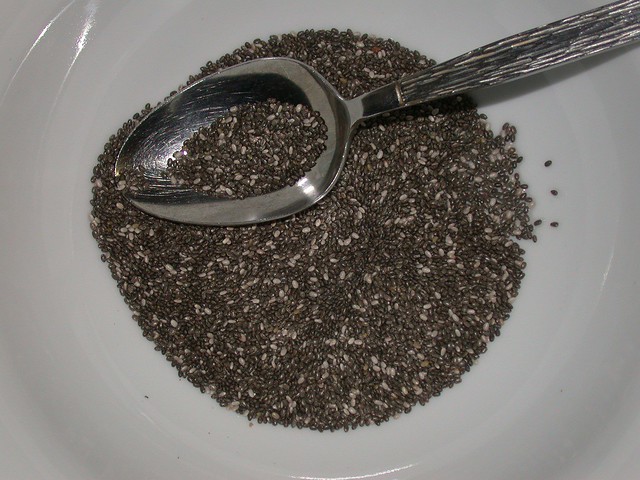I’m all for innovation in the area of food, and when that food is good for me, well that’s all the better (as long as it tastes good). Some of the new foods that food companies’ R&D folks come up in the name of “health” are wonderful, but others are just wacky. For sure, many new products introduced to the supermarket shelves every year try to take advantage of the “health halo” effect—clever marketing strategies intended to persuade consumers that a product is healthy based on common perceptions we have about certain words (such as “natural” or “low fat”) or qualities (such as organic or locally-grown). Whether these foods actually are healthful is another thing entirely.
Here’s my take on several rather unusual new foods, and whether they belong on your shopping list…

Chia Shots, Pods, Powders and Drinks
Chia mania is upon us! Chia has a lot going for it nutritionally—omega-3 fatty acids, plant-based protein and a good dose of fiber to boot. Chia shots are simply little packets of unadorned chia seeds—there’s nothing magical about them. And while they contain healthful chia seeds, you could just as easily divide a larger package of chia into tiny, tote-able portions if convenience is what you’re after (chia can be sprinkled, as is, on any manner of foods from salad to yogurt).
Various chia-containing drinks look cool with their tapioca-like chia globs suspended in colorful liquids, but again, you can stir chia seeds into any juice or smoothie and achieve the same gelatinous drink. Chia Pods are single-serve mixtures of fruit, coconut milk and chia seeds—again, nothing wrong with these healthful combos, but nothing one can’t do for oneself.
As for sprouted chia seed powder, this one is best to avoid at the moment, as the Centers for Disease Control just issued a warning that chia seed powder has been associated with food poisoning.
Verdict: Chia is great health-wise, and including it in your diet is a good idea, but special chia-containing products hold no special powers. Think simple: add chia to foods and drinks you already consume—it’s easy.
Savory Veggie Yogurts
Move over fruit, because veggies are having a heyday. Yogurt made from vegetables like beets, parsnips, tomatoes and sweet potatoes aim to appeal to those who like their yogurt on the less-sweet side. Although some flavors are slightly sweetened, the ingredients are simple and few—whole, grass-fed milk, veggies and vegetable juice, a little salt, maybe a little honey and active cultures. The overall effect is a far cry from typical fruit yogurts. Because of this, you can utilize veggie yogurts in a variety of savory applications include sauces, salads, dressings and dips.
Verdict: Whole milk yogurts have more fat than some other yogurts, but they feature wholesome, real ingredients. If you like the taste and can afford the premium price, these are a good, nutritious food.
Coconut Sugar
In our quest to find a sweetener that makes us feel good about consuming sugar, even the best of us can fall victim to the “natural” appeal of yet another healthy-sounding tropical treat. Coconut sugar, also called coconut palm sugar (not the same as palm sugar) seems to be the latest coconut-related product to jump on the health-halo train. First, it’s not made from coconuts, as the name suggests—it’s made from the sap of flower buds from the coconut palm tree. Any perceived health benefits you might attribute to coconut oil do not apply to coconut sugar. That said, it is a tasty sugar that’s chemically quite similar to regular granulated white sugar—it’s mostly sucrose and has the same calories as table sugar—16 calories per teaspoon.
Coconut sugar appears to rank lower than regular sugar on the glycemic index, a scale that rates how various foods and beverages impact blood sugar. Those that rank high on the GI are digested and absorbed more quickly than those items that rank lower on the GI. (I wrote about the GI previously if you want to know more about it.) The taste of coconut sugar reminds me a bit of the caramel-like taste of good brown sugar, although it subs well for regular white, granulated sugar easily—it’s not that strongly flavored. One area where the two sugars differ greatly: price. Expect to pay a premium price for coconut sugar.
Verdict: Switching from regular sugar to coconut sugar likely isn’t going to make a difference in your health. However, cutting down on all sugars likely will benefit you. Switch your focus from swapping to reducing when it comes to sugar.